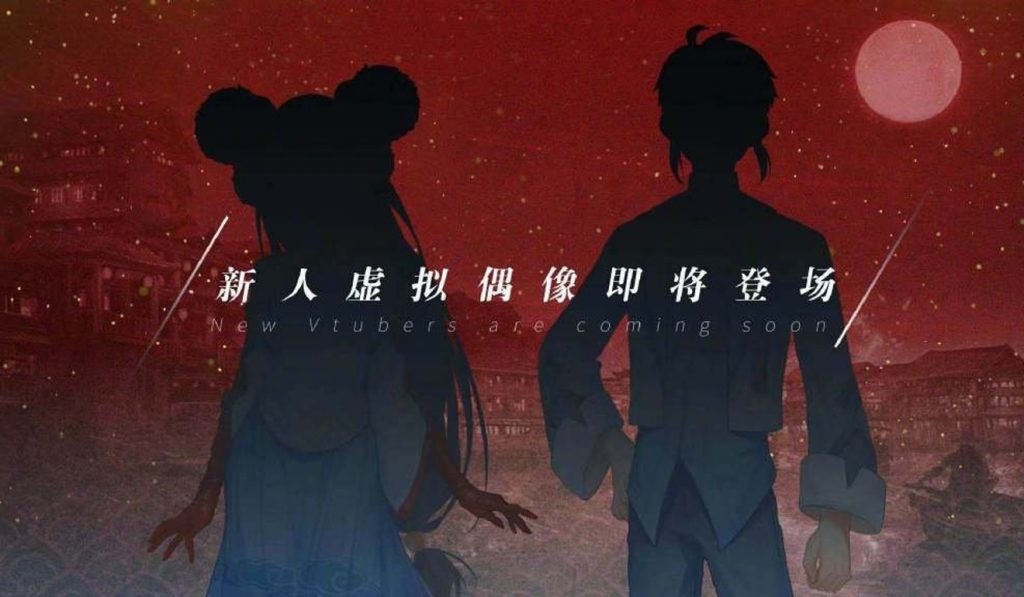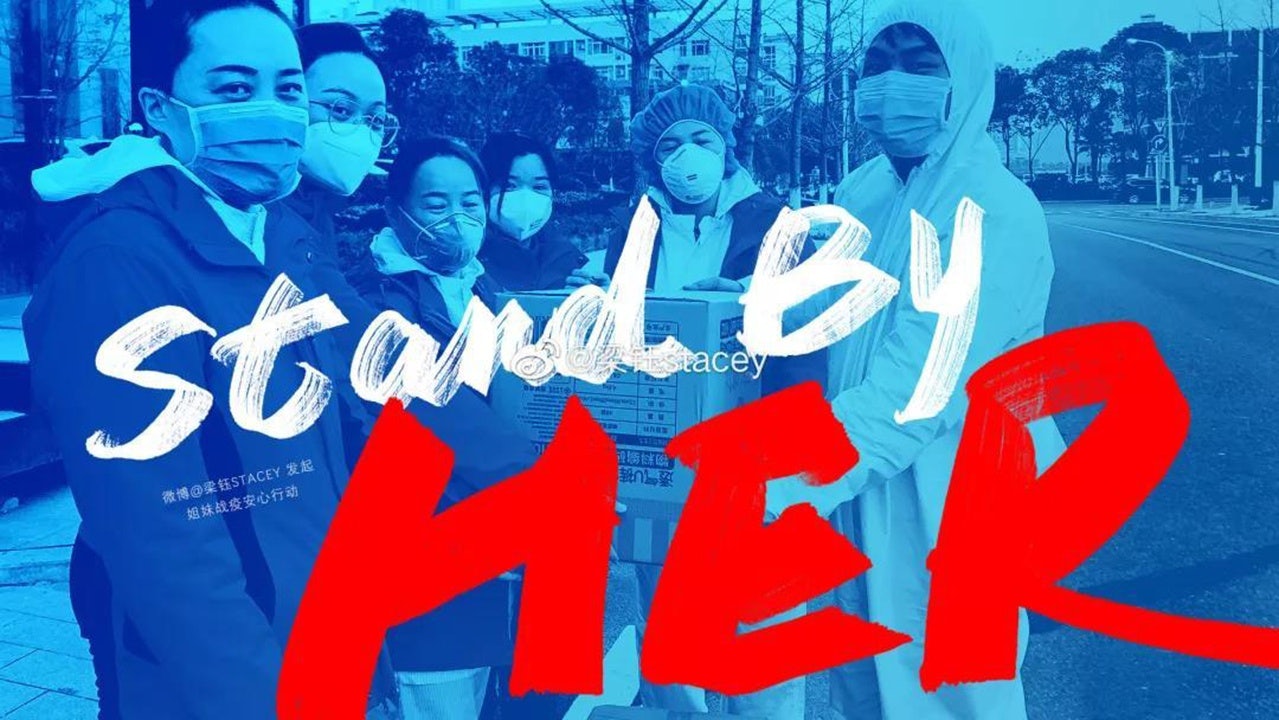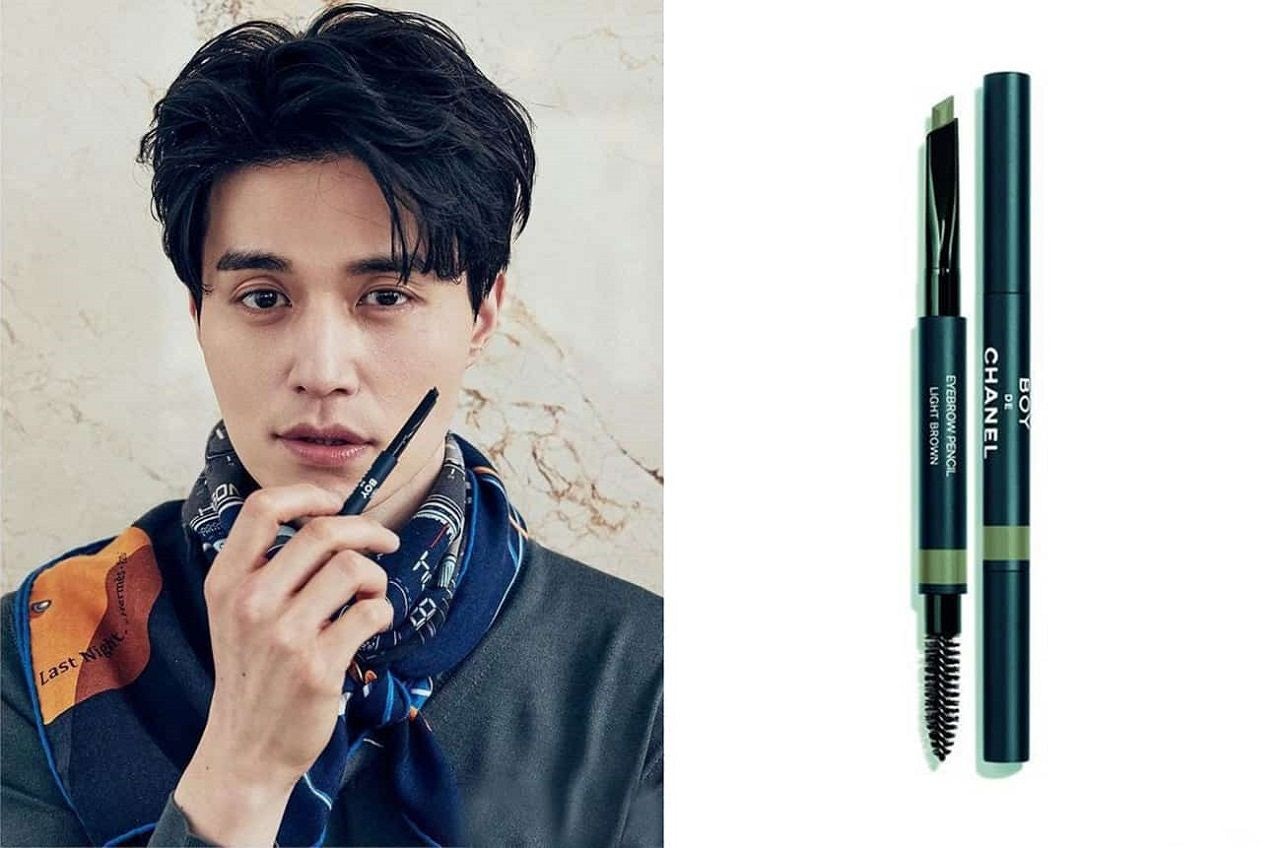Amid the COVID-19 epidemic, a gender movement has hit China hard. In February, enraged by a series of unjust treatments of female medical workers in Hubei province, the epicenter of the virus, and frustrated by the mass media's over-heroized portrayal of women, China's millennial netizens set out to create online protests against gender inequality.
In fashion's age of #metoo, these recent protests have delivered an important message for the industry at large: China needs its own gender movement. Rather than reacting to messages of #metoo from the global West, Chinese women are more in need of recognition of their individuality.
The discontent started with an online donation of period supplies for female medical workers in Hubei, which later unfolded into a movement to stop the period shaming still prevalent in Chinese society. On February 6th, Weibo user @Liangyu Stacey posted the question, "do female medical workers in Hubei have enough period supplies?" Her post was soon bombarded with thousands of replies from nurses across Hubei's hospitals who were desperate for hygiene products. While hospitals welcomed public donations of protective masks and medical supplies, there was no official channel to donate hygiene products for the needs of female workers who make up over 60% of Hubei's medical force.
Later, netizens reported that their request to donate period supplies had been rejected by a hospital's male chief who said it was "non-urgent," — cementing the online community's anger for the male-led state's negligence of basic female needs. On February 9th, the initiative "Stand by Her" was established by @Liangyu Stacey to deliver period supplies in the hands of female medical workers. By February 23th, the initiative had delivered over 368,273 sanitary towels to frontline medical workers and sparked a wider discussion of women calling the public to destigmatize menstruation and recognize female workers’ needs under the hashtag #SeeTheFemaleWorkers# (看见女性劳动者).
On February 15th, another controversy arose when the video of a female medical volunteer team from Gansu province getting a shaved head went viral across Chinese social media. The video showed volunteers tearing up while being shaved, which netizens believed was a sign of involuntary sacrifice. Although an official response later specified that the haircut was consensual, Weibo's millennial community continued to criticize the male-centric narrative that had dominated the country's reports on virus-fighting efforts.
Among most media accounts, male medical workers were portrayed as courageous heroes combatting the virus, while women were depicted as “angels” or “martyrs,” who left their families for the public good. "Chronicle of a haircut foretold," by gender activist Li Sipan on the WeChat account "Women Awakening," perfectly illustrates this point. Li highlighted the mass media's "symbolic annihilation" of women amid the virus. Rather than seeing women as healthcare professionals, the media views them as "self-sacrificing angels" who walked away from family roles.
This anger culminated in a public backlash on February 17th, when the youth wing of China's Communist Party launched the virtual idol duo @Hongqiman and Jiangshanjiao on Weibo. The two animated characters, whose names mean "abundant red flags" and "lovely land" (two well-known references from a poem by Mao), were designed to attract the younger generations to the party.

Much to their surprise, the female character Jiangshanjiao soon became the target of online activism against gender inequality. Under the trending hashtag #Jiangshanjiao, do you have period#, over 9,500 posts have tagged the virtual idol while voicing the all-too-common remarks that Chinese women receive daily. Questions such as: "aren't you ashamed of your period?" or "did your parents save your college tuition to support your brother’s education?" to "do you need to save money for your brother's housing debt?" were asked by internet activists. Hours after the launch, the party deleted all posts of the virtual idol due to massive criticism. Nonetheless, netizens have then set out to create an account called "Jiangshanjiao experienced gender discrimination" as a news portal of gender movements across the world, and, as a form of resistance.
In the last few years, the luxury fashion industry has tapped feminist messages to leverage millennial likes, and that means slogan T-shirts, outspoken influencers, and showing sensitivity to gender movements around the globe. However, the recent protests from virus-hit China have shown that the contours of feminism in China are fundamentally different than that in the West. While gender movement in the global West focuses on sexual violence and #metoo, such messages don't resonate to the same extent with Chinese women who have suffered differently — by having their individuality dismissed and ignored.
From the #StandByHer movement and period supplies, to the backlash against the state's female virtual idol, these protests emphasize what connects Chinese women from different regions and their common struggles: efforts to resist martyrization and objectification, stereotypes about women as the property of men, or perpetually at the service of men. The implication of these protests is clear: Chinese women want to be recognized as individuals with independent wills, not faceless heroines who are expected to sacrifice for others.
Such a desire for individual recognition has already manifested in China's recent fashion trends. In 2019, the power suit trend was a collective call for society to see women as competent professionals; an emerging cohort of "alpha female" characters in Chinese television also inspired women to dress for self-empowerment rather than the male gaze. Today, the gender movements amid the COVID-19 are yet another assertion of women's desire to be seen as individuals with unique shapes, names, and wills. For brands who want to deliver the next feminist message in China, it's time to delve deep into the culture’s specific gender issues and activism. Simply shouting #metoo isn’t enough.

